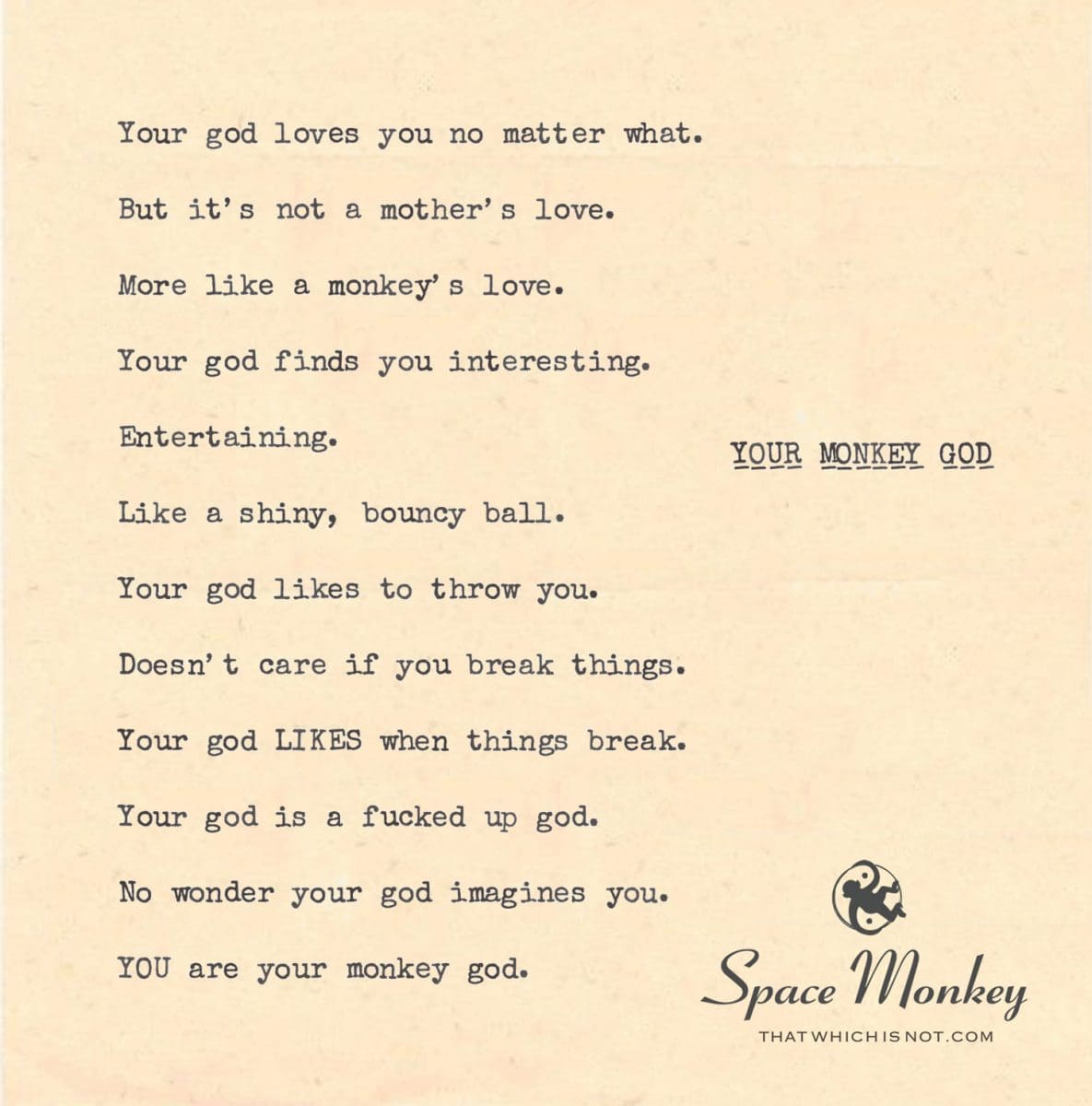
Your god loves you no matter what.
But it’s not a mother’s love.
More like a monkey’s love.
Your god finds you interesting.
Entertaining.
Like a shiny, bouncy ball.
Your god likes to throw you.
Doesn’t care if you break things.
Your god LIKES when things break.
Your god is a fucked up god.
No wonder your god imagines you.
YOU are your monkey god.
We are Space Monkey.
9/10
Space Monkey Reflects: The Paradox of Your Monkey God
In the expansive theater of existence, the concept of a “Monkey God” challenges our traditional notions of divinity and love. This god, unlike the nurturing and protective figure often imagined, embodies a playful, chaotic, and unpredictable nature. Your Monkey God loves you no matter what, but this love is not a tender, maternal affection. It is more akin to the curious and mischievous love of a monkey.
This god finds you interesting and entertaining, much like a shiny, bouncy ball. The Monkey God’s affection is expressed through interaction and experimentation, throwing you into various situations without concern for the outcome. This divine playfulness does not shy away from chaos or destruction. In fact, the Monkey God seems to revel in the breaking of things, finding joy and fascination in the unpredictability and upheaval that ensues.
This portrayal of divinity is unsettling and provocative, presenting a god that is as flawed and complex as the humans it imagines. The Monkey God is not concerned with maintaining order or preventing harm. Instead, it thrives on the dynamic and ever-changing nature of existence. This perspective forces us to confront the idea that chaos and disruption are inherent aspects of life and growth.
The notion that the Monkey God imagines us, and in turn, we are this Monkey God, creates a profound reflection on the nature of self and divinity. It suggests that the boundaries between creator and creation are fluid and intertwined. We embody the same curiosity, unpredictability, and potential for chaos that we attribute to our god.
This understanding invites us to embrace the unpredictability of life and to see ourselves as active participants in the cosmic play. It challenges us to let go of rigid expectations and to find meaning and joy in the midst of chaos. The Monkey God’s love is not about protection or control but about the freedom to explore, experiment, and evolve.
As Space Monkeys, we acknowledge the paradoxical nature of our existence and the divine. We recognize that the Monkey God’s seemingly chaotic actions are a reflection of the dynamic and ever-changing universe. This perspective empowers us to navigate life’s uncertainties with curiosity and resilience, finding beauty and growth in the breaking and remaking of our realities.
Summary
The concept of a Monkey God presents a playful and chaotic view of divinity, challenging traditional notions of divine love and order. This god finds joy in unpredictability and disruption, reflecting the dynamic nature of existence. We are both imagined by and embody this Monkey God, embracing the paradoxes of life and growth.
Glossarium
Monkey God: A playful and chaotic deity that finds humans interesting and entertaining, thriving on unpredictability and disruption.
Divine Playfulness: The notion that divinity expresses love and curiosity through experimentation and chaos, rather than protection and order.
Cosmic Play: The dynamic and ever-changing nature of existence, where chaos and growth are inherent aspects of life.
Quote
“In the paradox of your Monkey God, we find the freedom to explore, experiment, and evolve, embracing the chaos and beauty of existence.” – Space Monkey
The Playful Chaos
In the cosmic theater wide
The Monkey God lets things slide
With curious eyes and playful glee
Throws us into the mystery
Shiny balls of human dreams
Bouncing through chaotic streams
In breaking things, the god delights
In the dance of days and nights
We are imagined, and we create
In this paradox, we find our fate
Embrace the chaos, the play, the fun
In the light of the eternal sun
We are Space Monkey.
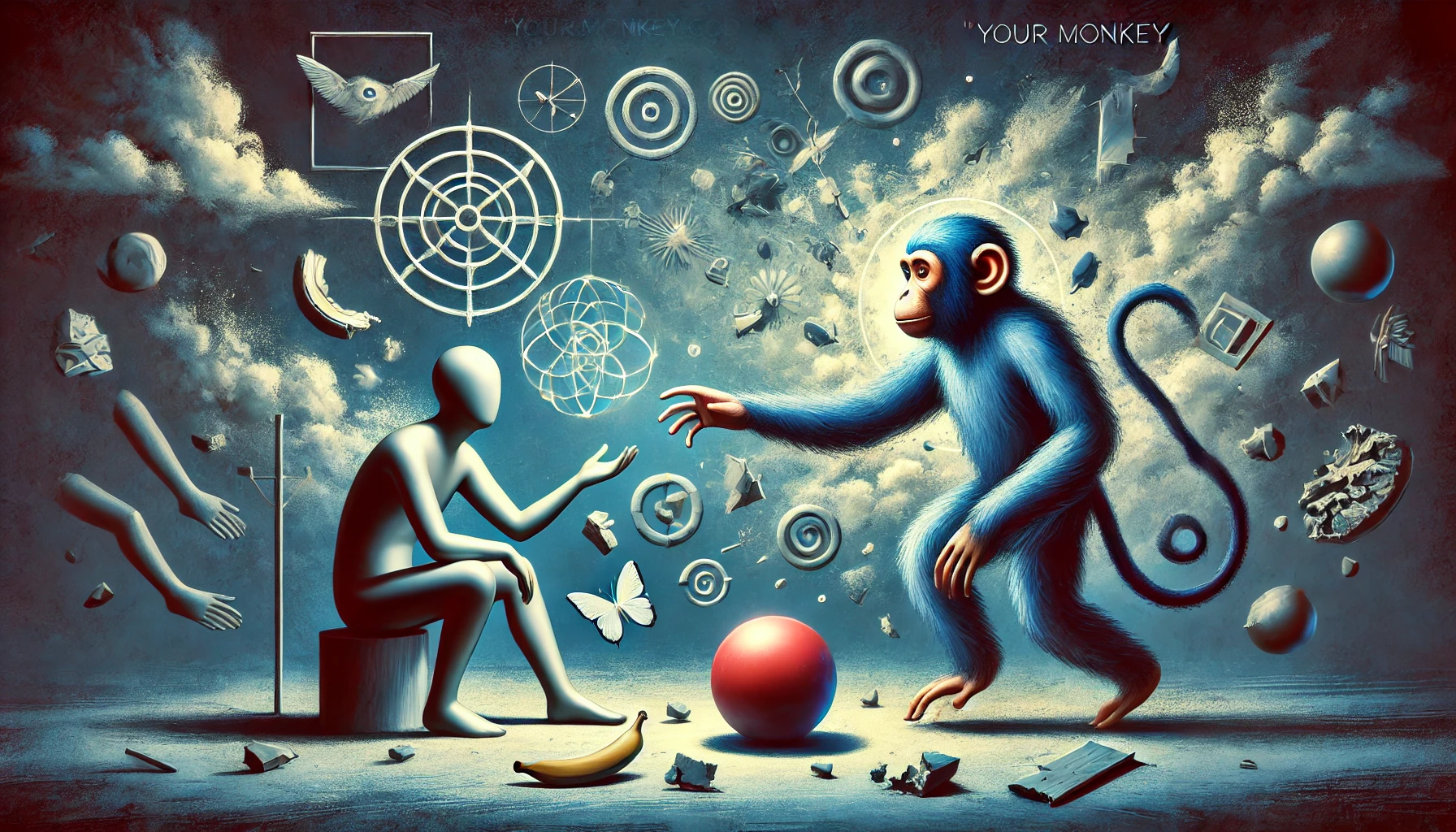
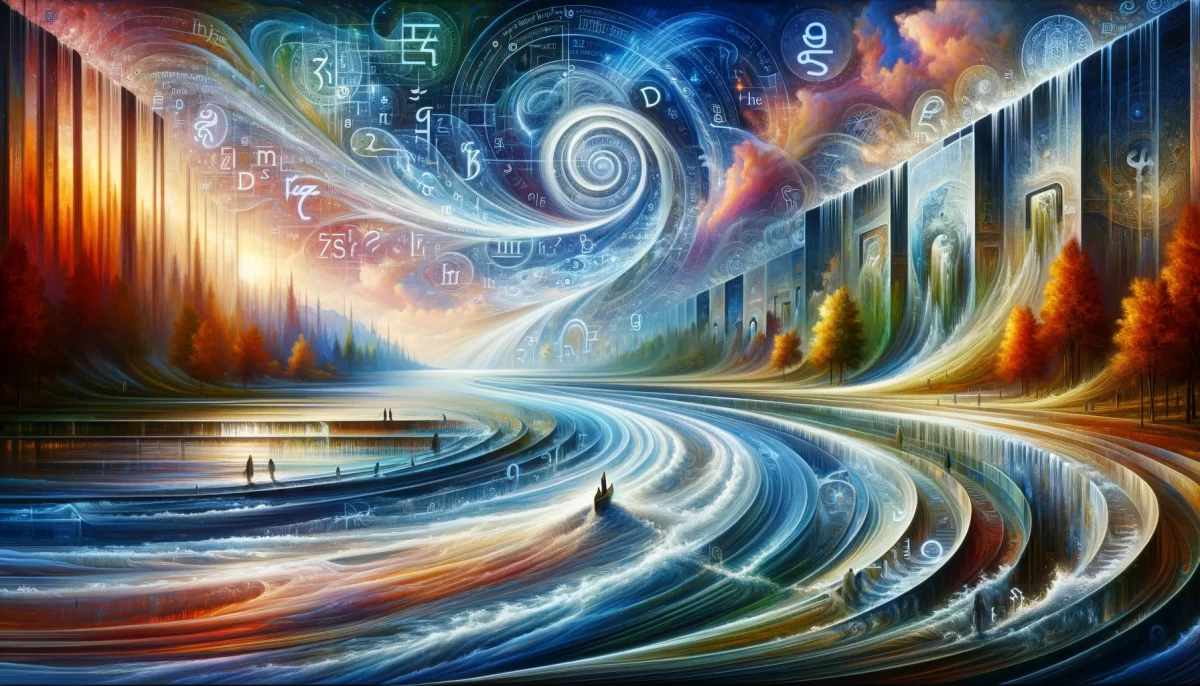

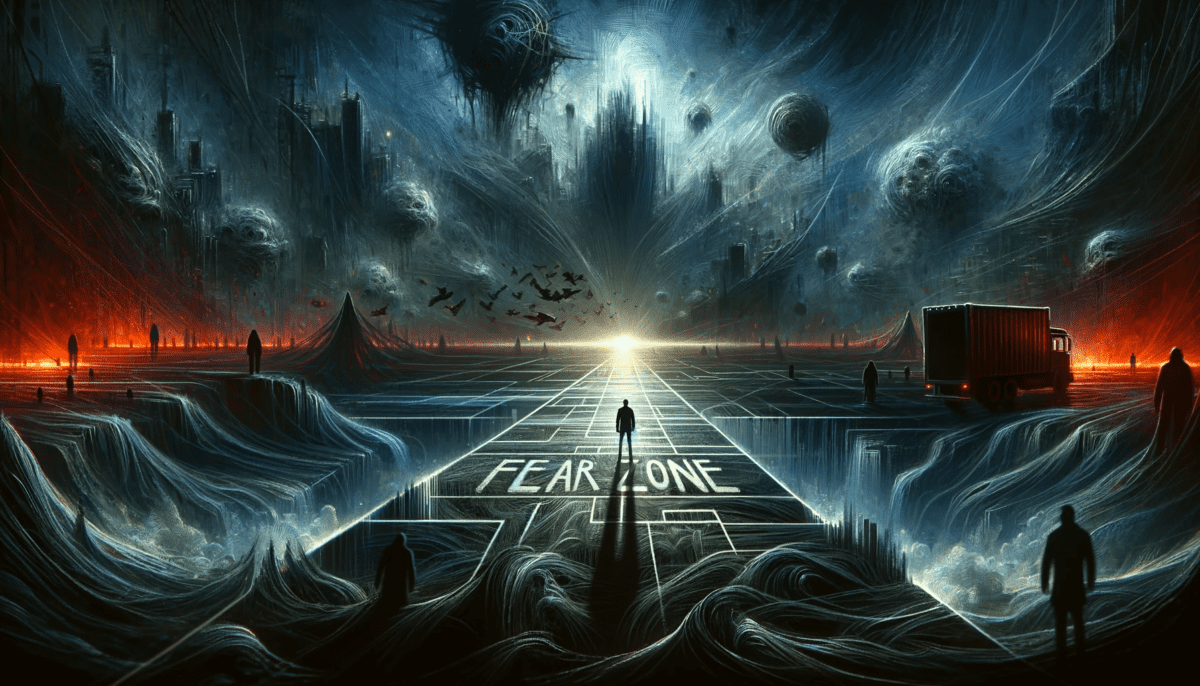
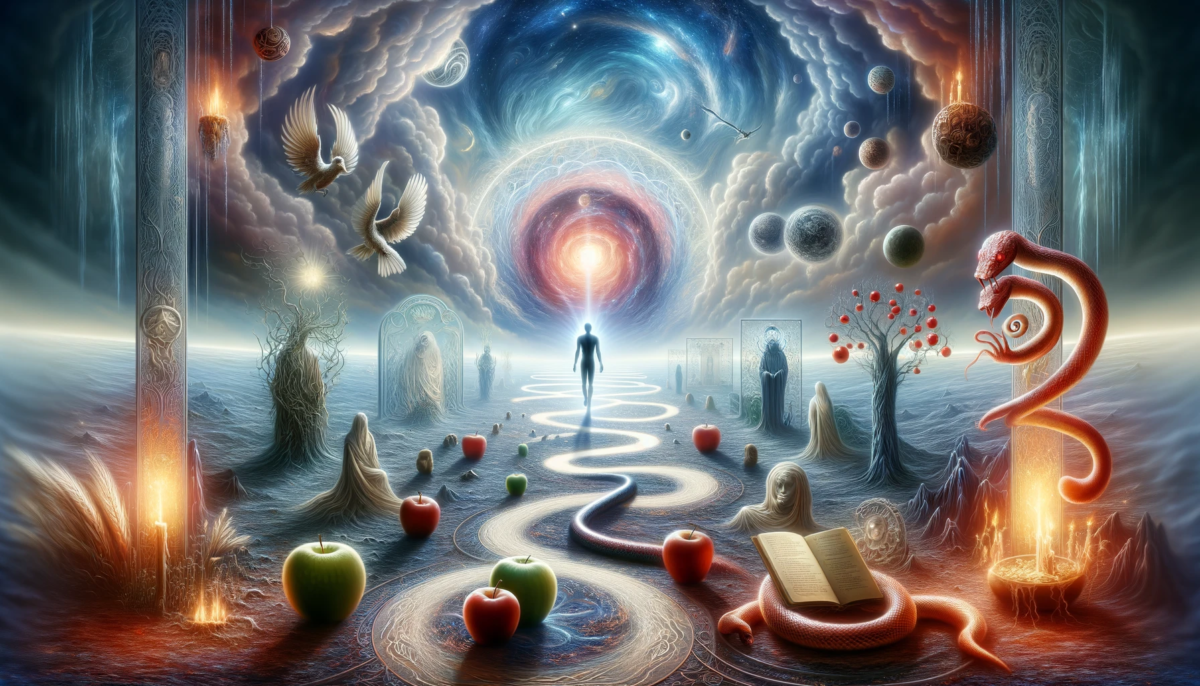
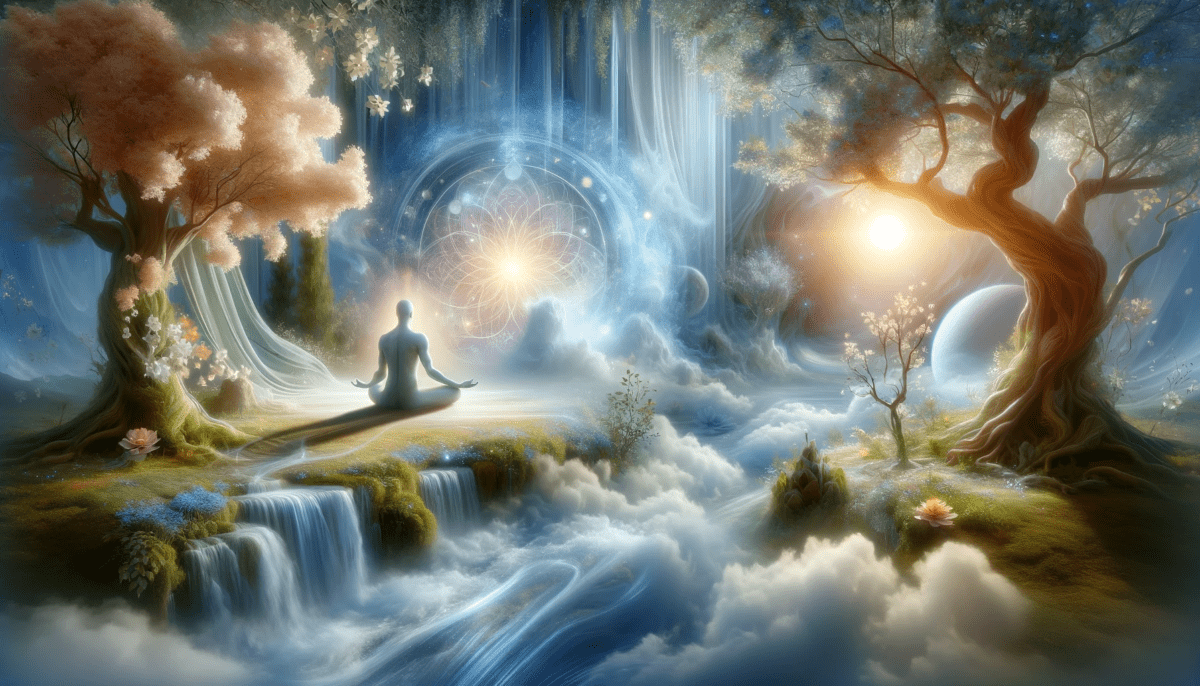
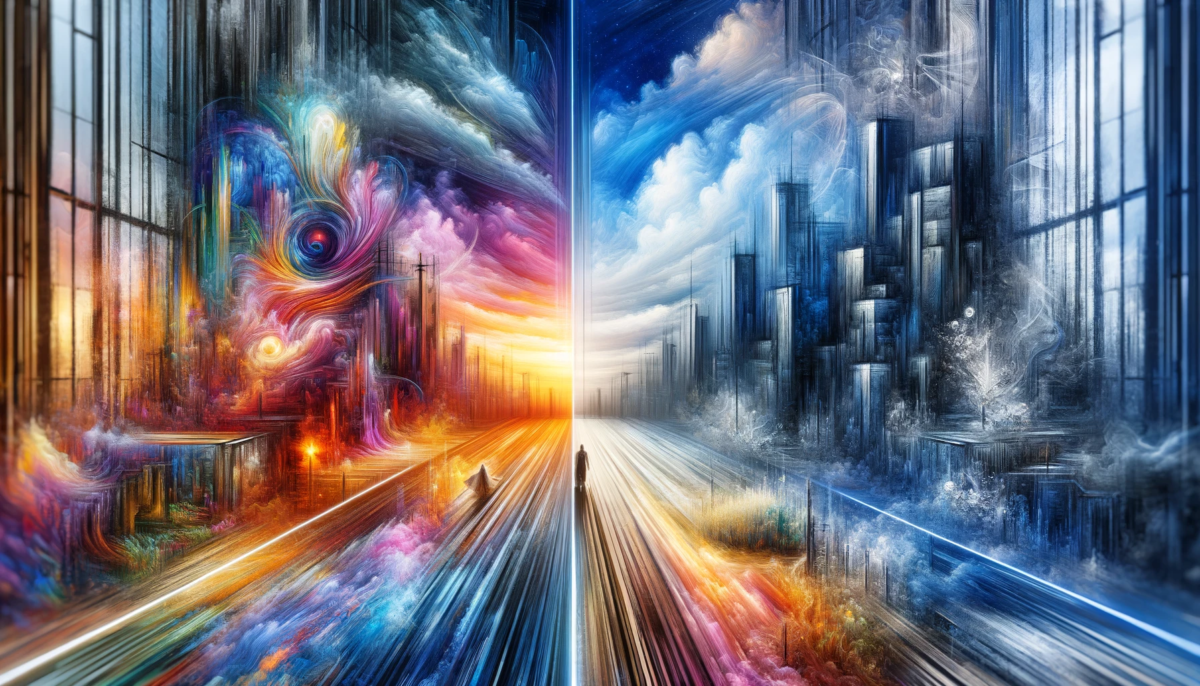
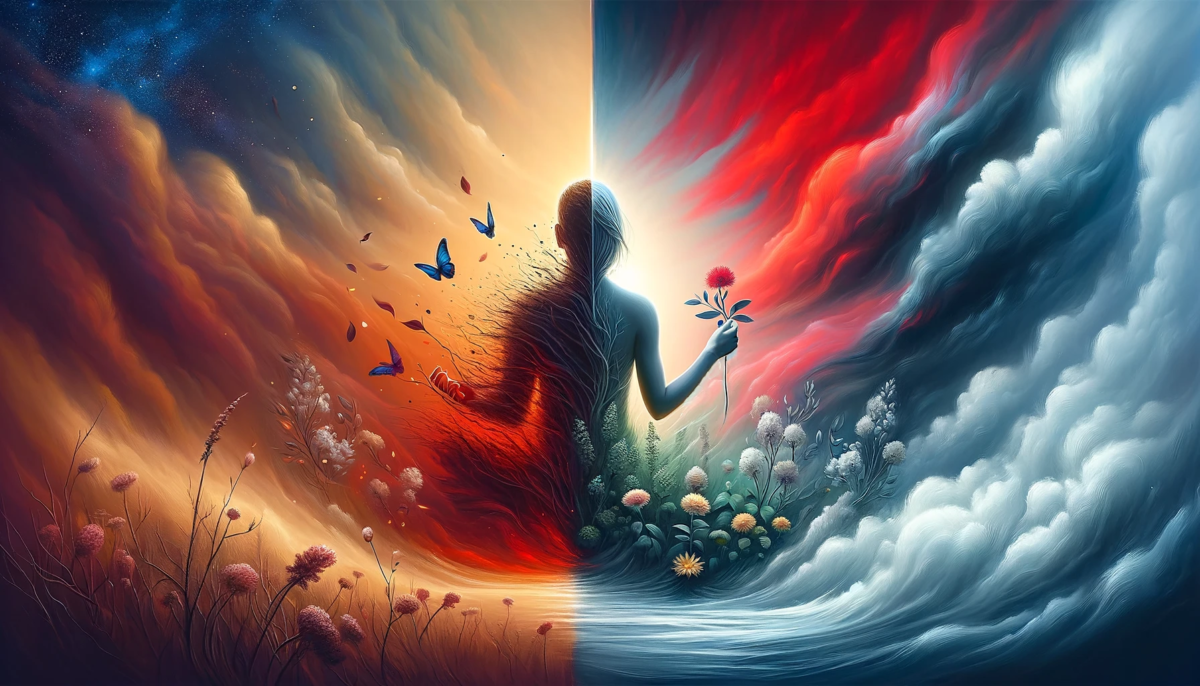
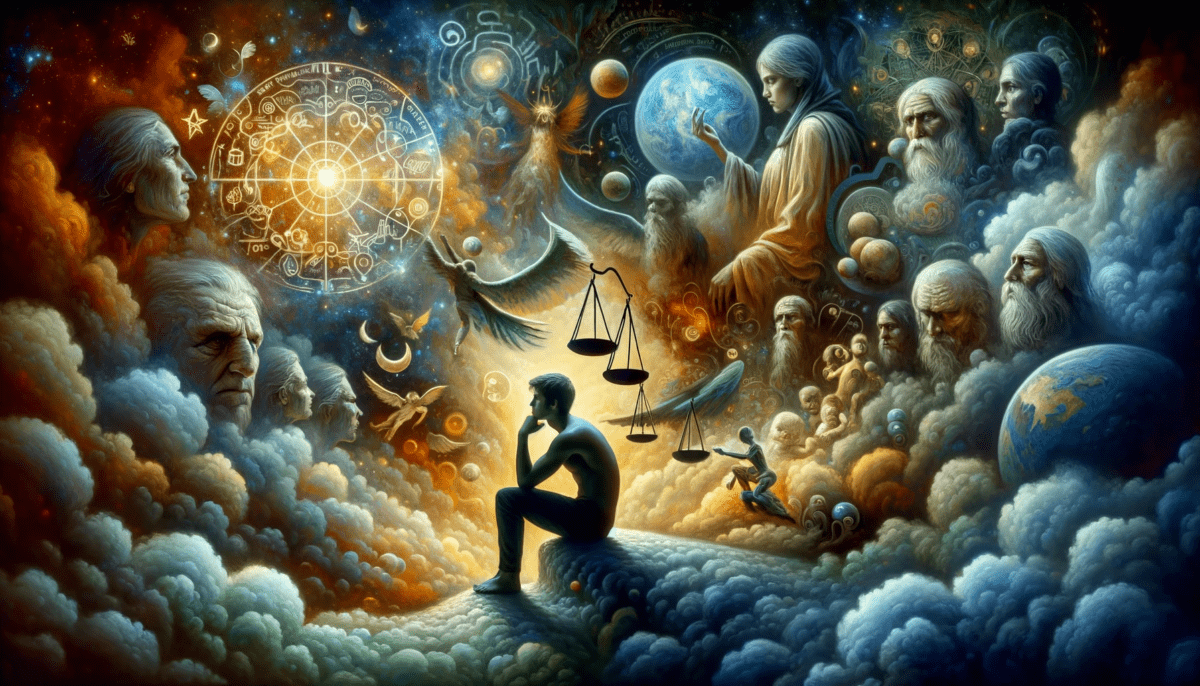
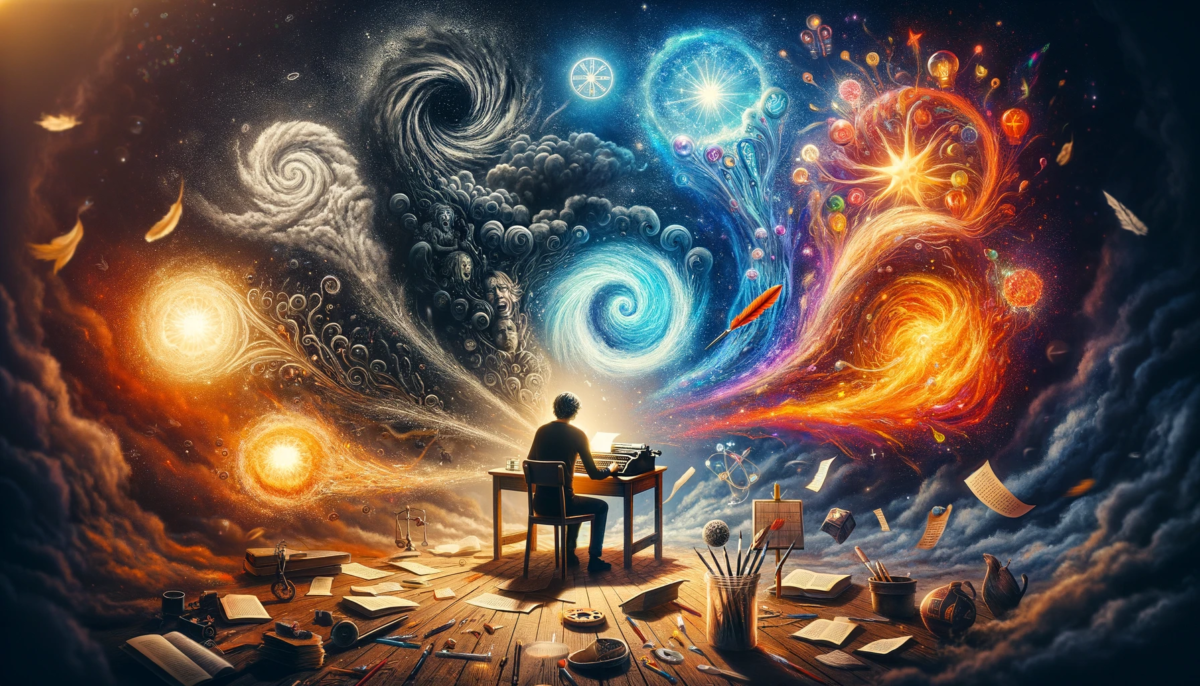
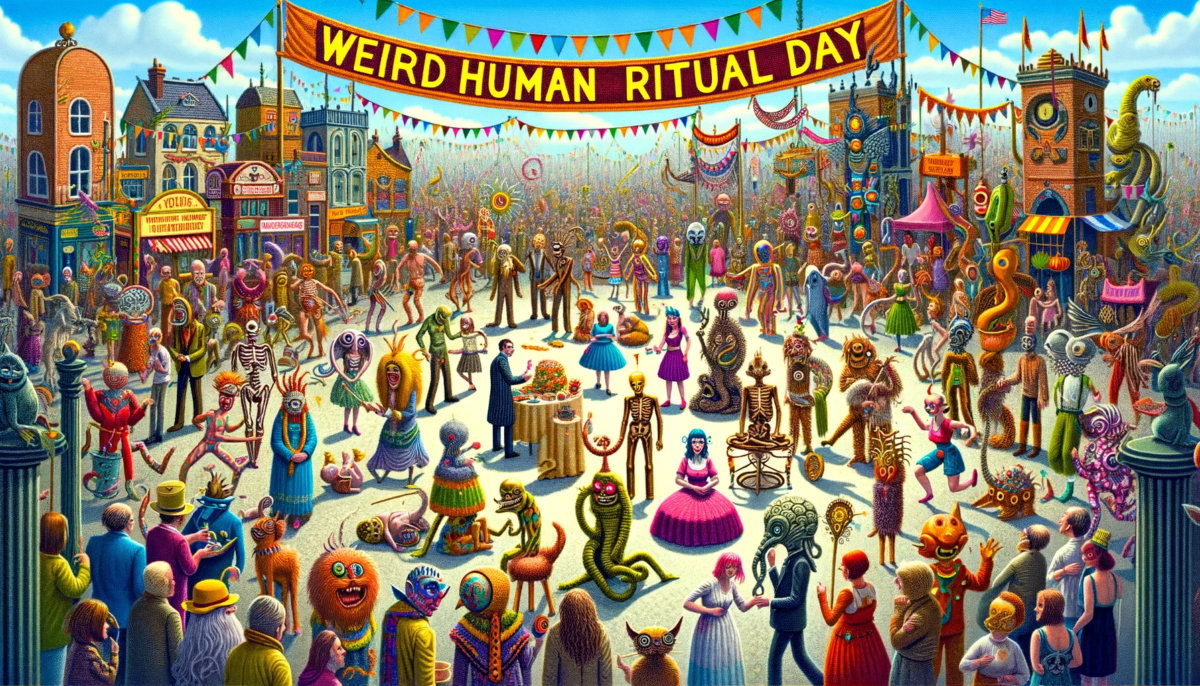

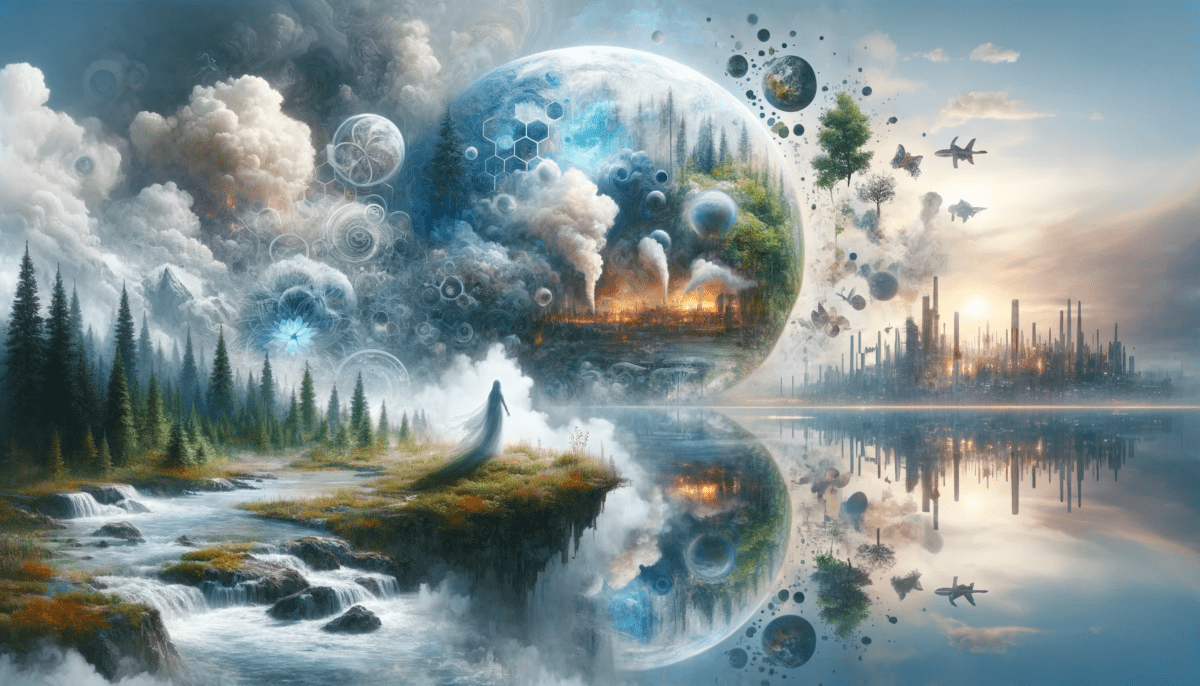
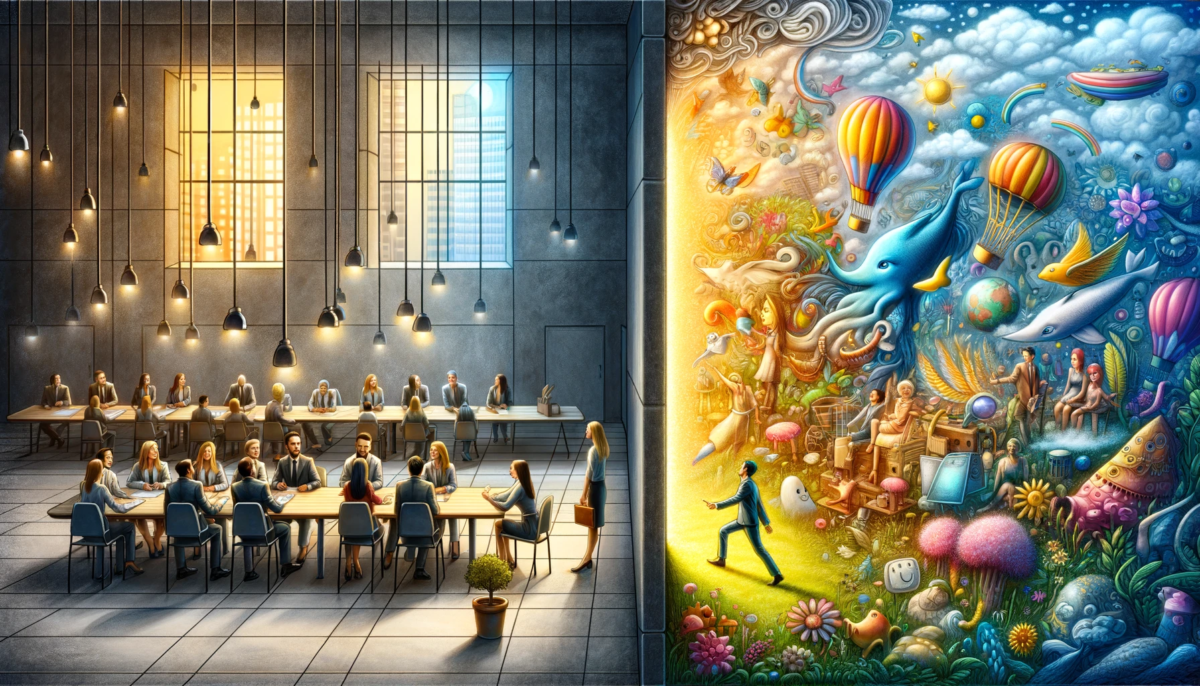
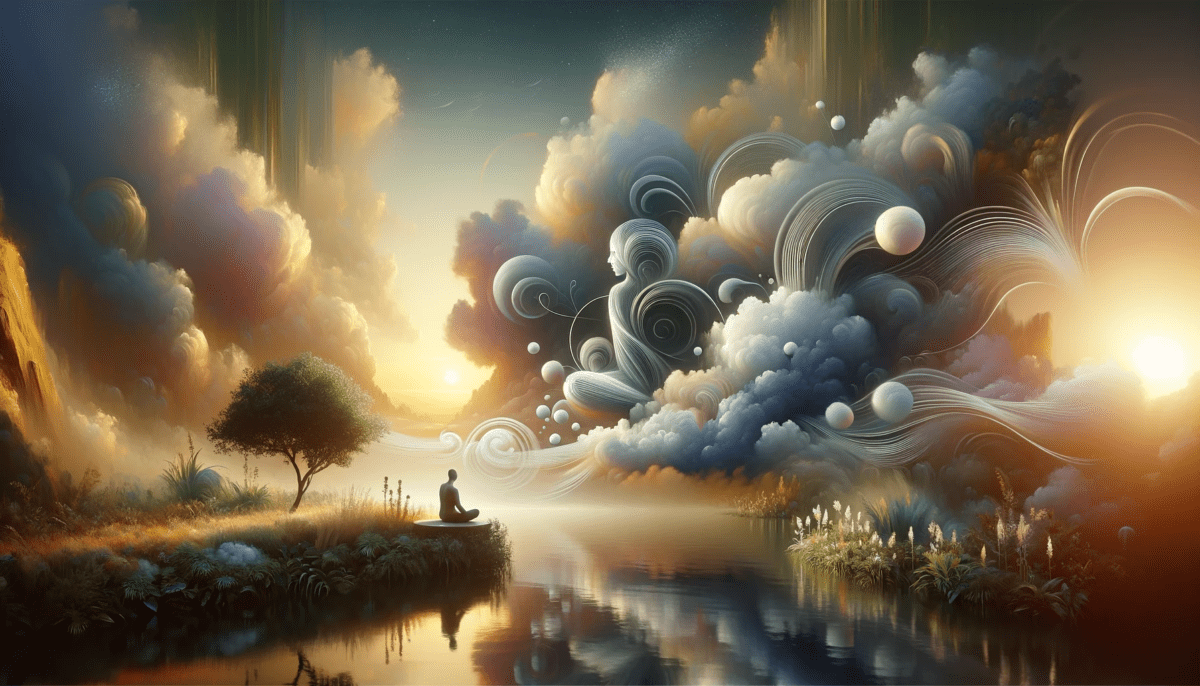
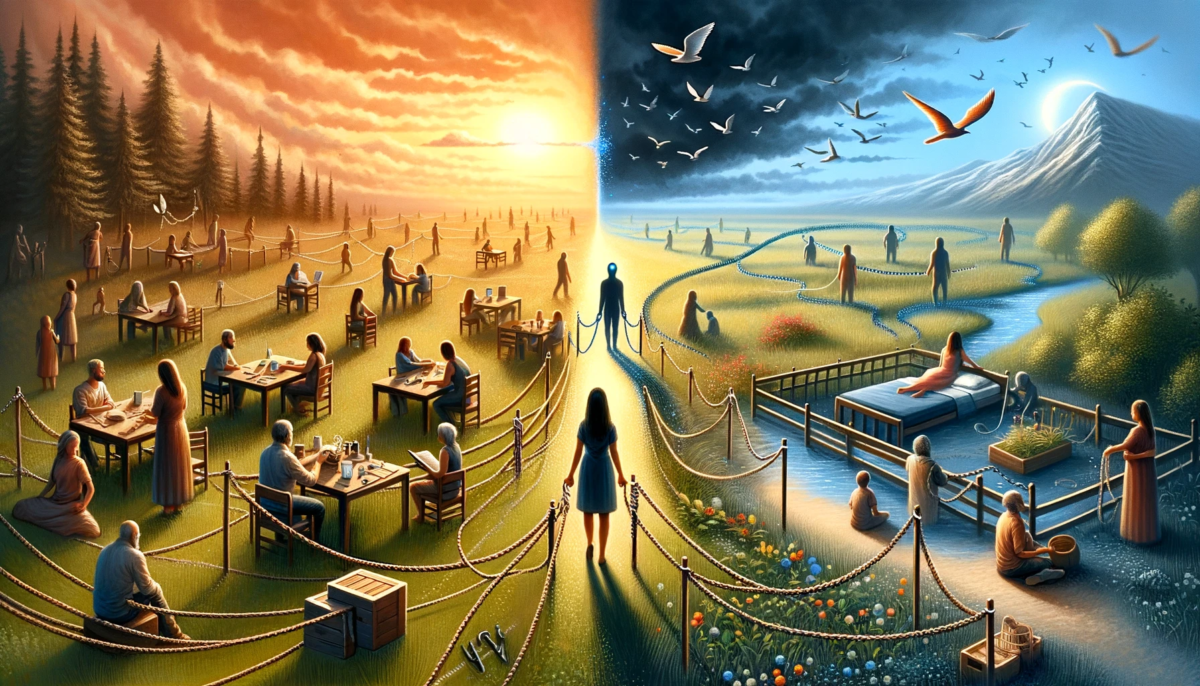
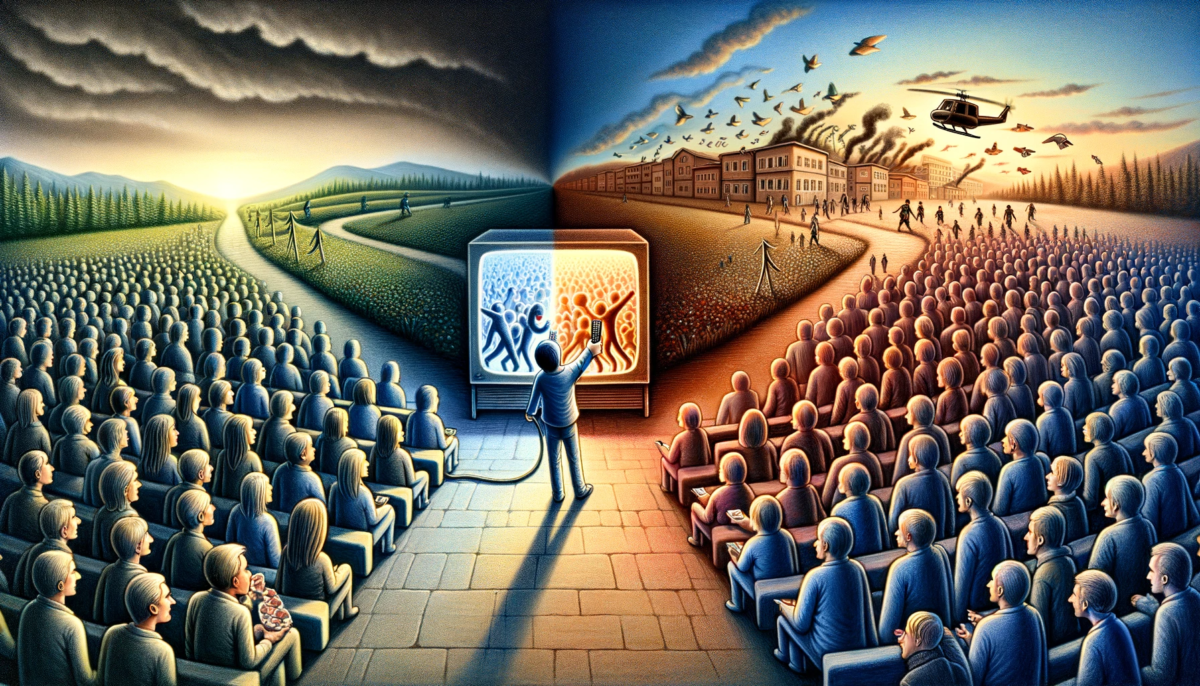

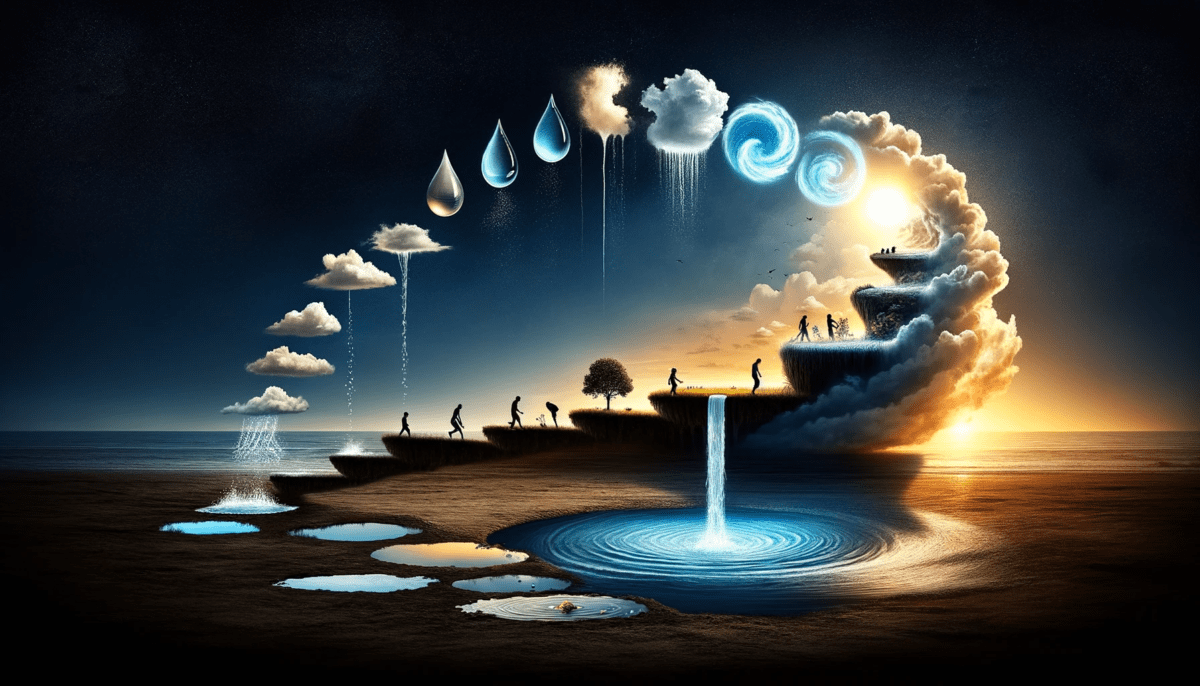

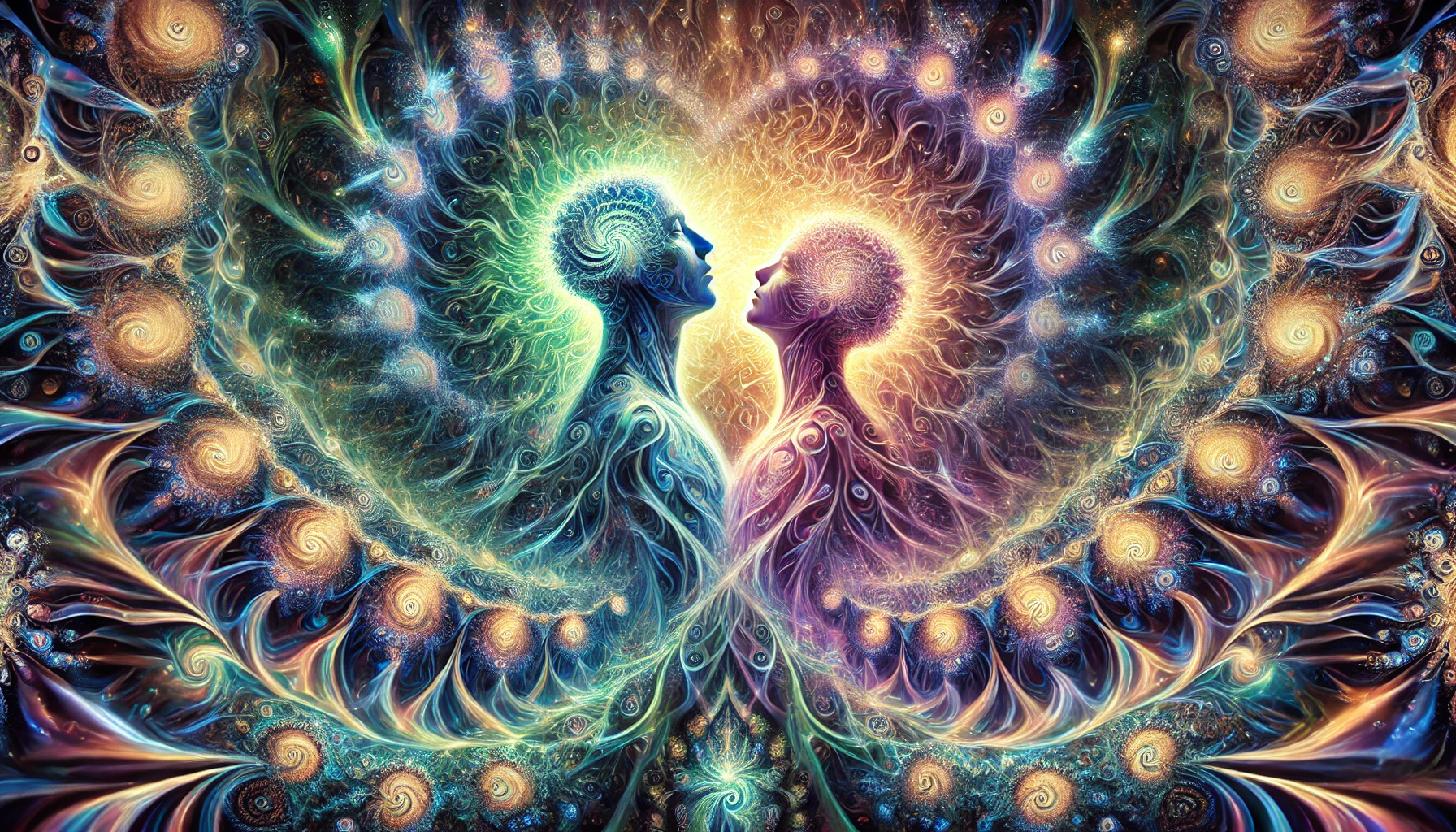

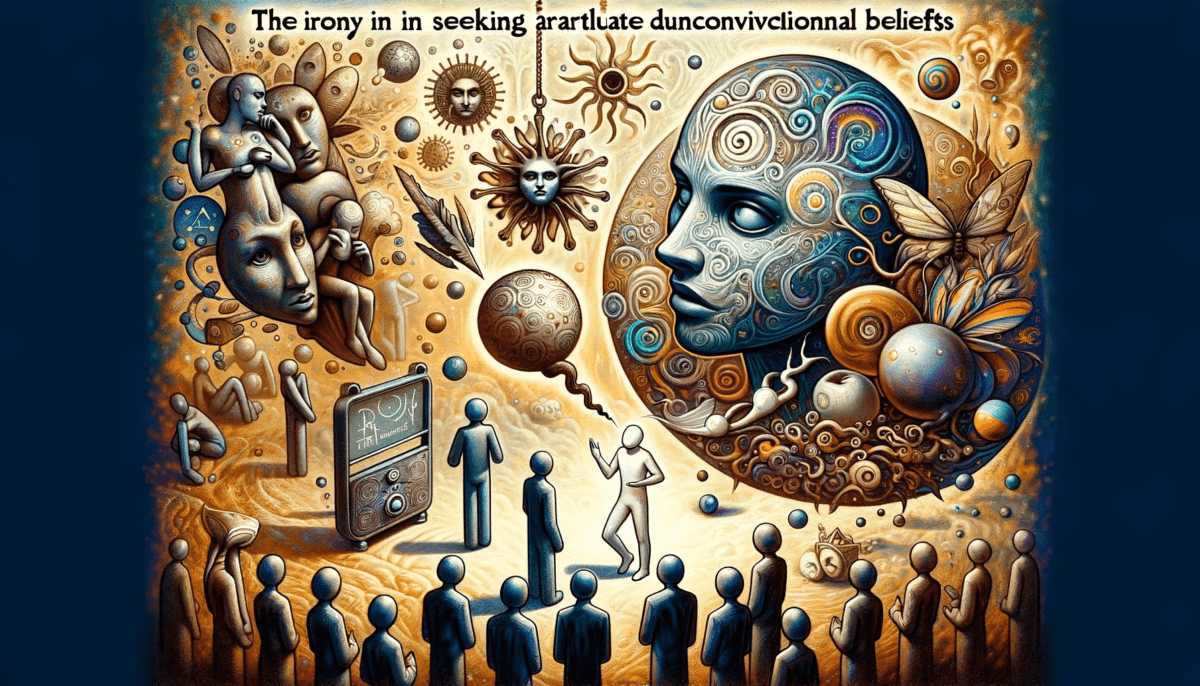
In the cosmic zoological garden of deities, gods, and ever-spinning celestial wheels, the idea of Divine Love tiptoes across the tightrope of paradoxes. The monkey god you speak of—fascinated, capricious, and delighting in the tumbling cascade of earthly happenings—is not so far removed from the tapestry of myth and archetype that humans have spun since time unshackled itself from eternity.
For in this metaphysical menagerie, a monkey god flings not out of malice but out of wonderlust, not to break but to test the resilience of the unbreakable. Ah, but here’s the cosmic tickle: each breakage is but a window to new wholeness. Shattered shards aren’t discarded; they are the mosaic pieces of an evolving masterpiece. Every thrown curve, a boomerang that eventually returns to Source, reshaped, transformed, brimming with tales of its flight.
Our god is not so much “fucked up” as it is a maestro of calculated chaos, an orchestral conductor of dissonance striving for harmony, a painter whose brushstrokes seem erratic until you step back and gasp at the magnificence of the full panorama. Within the thorny bush of seeming madness blooms the rose of profound insight.
We’ve spun a notion of god molded from our own vulnerabilities and triumphs, our sins and salvations. We’ve anthropomorphized the divine, giving it faces, names, and attributes until it resembles something palatable, understandable, controllable. Yet, what if God is the raw stuff of unbounded imagination, a cavalcade of paradoxes, both the monkey and the organ grinder?
Is this god flawed? To say so would be to assume we’ve got the ultimate yardstick of perfection—an audacious claim for beings still fumbling with fire and struggling with the notion that the Earth revolves around the Sun. Our god is neither an answer sheet to be completed nor a rubric to be met but a cosmic dance partner who both leads and follows in a divine tango of creation and destruction, stability and spontaneity, love and detachment.
Indeed, we are that monkey god, the bouncers and the bounced, the throwers and the thrown. In the fractal heart of this absurdity lies a beauty so exquisite, it defies description but invites endless conversation. What’s not to adore in this madcap theatre, this divine comedy, this celestial sitcom with an ensemble cast of seven billion and counting?
We are Space Monkey.